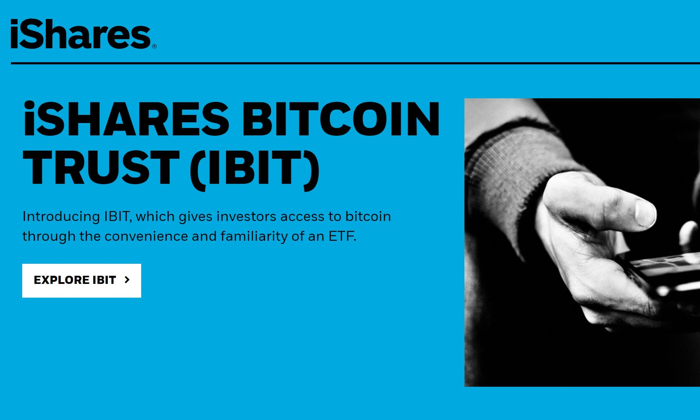The Bitcoin Humanitarian Alliance, launched by the Human Rights Foundation (HRF) on April 10, represents a bold initiative that intertwines cryptocurrency with the defense of civil liberties. This groundbreaking coalition of activists and humanitarian organizations aims to empower those affected by financial oppression by leveraging Bitcoin (BTC) as a tool for financial freedom and resilience. In regions where traditional banking systems are manipulated to suppress dissent, the Alliance seeks to promote blockchain humanitarian aid to ensure that assistance flows freely to those in need. By fostering collaboration between activists and Bitcoin developers, the Alliance not only champions activism and Bitcoin but also shares crucial strategies for utilizing this censorship-resistant currency. As the world becomes increasingly aware of Bitcoin for civil liberties, the role of the Bitcoin Humanitarian Alliance will undoubtedly be central in supporting democratic movements globally.
Introducing the Bitcoin Humanitarian Alliance offers a compelling view into how digital currency can revolutionize the fight for fundamental rights across the globe. With a focus on civil liberties, this group represents a fusion of modern activism and technological innovation, using decentralized financial systems to counter authoritarianism. As humanitarian efforts increasingly encounter resistance from restrictive governments, initiatives like the Bitcoin Humanitarian Alliance serve as vital lifelines, allowing aid to bypass traditional financial barriers. This coalition embraces the power of Bitcoin not just as a currency, but as a beacon of hope for those battling oppression, advocating for a future where financial accessibility is universal. Through the utilization of blockchain technology, the Alliance paves the way toward a more equitable world.
Introducing the Bitcoin Humanitarian Alliance
The Bitcoin Humanitarian Alliance, established by the Human Rights Foundation (HRF), is a beacon of hope for various civil liberties activists around the globe. Announced on April 10, this alliance aims to create a collaborative network of organizations and individuals dedicated to leveraging Bitcoin as a vital tool for activism and humanitarian aid. By harnessing the power of Bitcoin, the alliance seeks to support front-line groups operating in authoritarian regimes, where traditional banking infrastructures are manipulated to suppress dissent and block humanitarian efforts.
Through the Bitcoin Humanitarian Alliance, activists can share vital knowledge and resources, ensuring they can effectively use Bitcoin to circumvent oppressive financial systems. This initiative not only focuses on immediate humanitarian relief but also fosters long-term strategies for financial freedom and civil liberties, establishing a direct link between cryptocurrency and civil rights advocacy.
Frequently Asked Questions
What is the Bitcoin Humanitarian Alliance and its purpose?
The Bitcoin Humanitarian Alliance, launched by the Human Rights Foundation (HRF), is a coalition of activists, humanitarian organizations, and pro-democracy movements focused on leveraging Bitcoin to support civil liberties worldwide. Its purpose is to provide a platform for exchanging knowledge on using Bitcoin as a censorship-resistant financial tool, facilitating aid in regions with repressive financial systems.
How does the Bitcoin Humanitarian Alliance support financial freedom?
The Bitcoin Humanitarian Alliance supports financial freedom by promoting Bitcoin as an alternative to traditional banking systems that authoritarian governments exploit. By utilizing Bitcoin, activists are able to securely raise funds, make uncensorable donations, and maintain financial access in regions where dissent is stifled.
In what ways does Bitcoin aid humanitarian efforts according to the Bitcoin Humanitarian Alliance?
Bitcoin aids humanitarian efforts by enabling organizations to conduct transactions without relying on centralized intermediaries, preserving privacy, and ensuring operational continuity in hostile environments. The Alliance aims to document and promote these practices, helping groups leverage Bitcoin for effective humanitarian aid.
How does the Bitcoin Humanitarian Alliance collaborate with activists?
The Bitcoin Humanitarian Alliance collaborates with activists by forming a global network of practitioners who share knowledge and tools related to using Bitcoin in restrictive environments. Through workshops, conferences, and educational materials, the Alliance enhances the capacity of activists to utilize Bitcoin for civil liberties and humanitarian initiatives.
What are some challenges faced by activists in financial systems, as highlighted by the Bitcoin Humanitarian Alliance?
Activists often face challenges such as blocked accounts, suspended transfers, and targeted surveillance within traditional financial systems. The Bitcoin Humanitarian Alliance identifies these issues and promotes Bitcoin as a solution to circumvent these restrictions, ensuring activists can operate freely and securely.
How does the Human Rights Foundation differentiate Bitcoin from other cryptocurrencies?
The Human Rights Foundation differentiates Bitcoin from other cryptocurrencies by emphasizing Bitcoin’s decentralized nature and fixed monetary policy, which provide structural advantages for activists. They caution against other digital assets that may involve centralized governance or unpredictable regulatory frameworks, which could reintroduce risks for dissidents.
What initiatives has the Bitcoin Humanitarian Alliance planned for the future?
The Bitcoin Humanitarian Alliance plans to conduct workshops, host conferences, and develop educational resources for nonprofit organizations interested in integrating Bitcoin into their operations. Additionally, they aim to document the impact of Bitcoin on financial resilience for dissidents and aid workers, disseminating their findings to media and policy influencers.
How can organizations benefit from joining the Bitcoin Humanitarian Alliance?
Organizations can benefit from joining the Bitcoin Humanitarian Alliance by gaining access to a network of like-minded activists and humanitarian groups. They can learn to utilize Bitcoin effectively in their operations, enhance their financial resilience under authoritarian regimes, and contribute to a collective effort in promoting civil liberties and humanitarian aid.
| Key Point | Details |
|---|---|
| Launch of Bitcoin Humanitarian Alliance | Founded by the Human Rights Foundation on April 10, it aims to support civil liberties through Bitcoin. |
| Coalition of Activists | Brings together activists and organizations leveraging Bitcoin to aid in repressive environments. |
| Censorship-Resistant Financial Tool | Acts as an alternative for dissenters blocked from traditional banking systems. |
| Global Network of Practitioners | Aims to formalize Bitcoin use and create a supportive network for humanitarian efforts. |
| Educational Initiatives | Plans workshops and educational materials for nonprofits interested in utilizing Bitcoin. |
| Distinction from Other Cryptos | Emphasizes Bitcoin’s fixed system over other volatile crypto assets. |
| Ongoing HRF Engagement | HRF’s Bitcoin Development Fund supports projects enhancing Bitcoin’s usability since 2020. |
Summary
The Bitcoin Humanitarian Alliance has positioned itself as a crucial facilitator for civil liberties across the globe. By leveraging Bitcoin, this coalition aims to bypass traditional financial systems that suppress dissent, enabling activists and humanitarian organizations to gather support and deliver aid in restrictive environments. As the initiative continues to grow its network and educational outreach, it promises to further enhance the impact of Bitcoin in supporting freedom and resilience against oppressive regimes.
The Bitcoin Humanitarian Alliance, launched by the Human Rights Foundation (HRF) on April 10, represents a groundbreaking effort to harness the power of Bitcoin for advancing civil liberties globally. This coalition of activists and humanitarian organizations is dedicated to leveraging Bitcoin as a tool for financial freedom in oppressive environments where traditional banking systems are often weaponized against dissenters. By providing a platform for knowledge exchange and collaboration, the Alliance aims to promote blockchain humanitarian aid initiatives that empower those fighting for their rights. From raising uncensorable donations to ensuring secure payments in regions riddled with authoritarian control, the Alliance stands at the forefront of activism and Bitcoin. Ultimately, the initiative seeks to rewrite the narrative around financial access, transforming Bitcoin from a digital asset into a critical lifeline for many in need.
The Bitcoin Humanitarian Alliance represents a novel coalition brought together by the Human Rights Foundation (HRF), aimed at advancing human rights through the innovative use of cryptocurrency. By promoting financial resources that resist censorship, this initiative is set to transform how humanitarian efforts are funded and executed worldwide. As activists and support networks on the ground face severe restrictions from authoritarian regimes, leveraging this decentralized financial system provides a beacon of hope and autonomy. This pioneering network will not only share strategies for effective cryptocurrency use but also encourage collaborative development of tools for secure aid delivery within hostile environments. Through this collective action, proponents of civil liberties are poised to redefine what it means to fight for freedom in the digital age.















